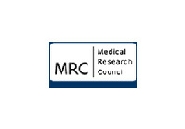The University of Bristol played host to the South West Medical Research Council (MRC) roadshow on Friday November, 21. The event is one of a number of such events taking place across the UK that will allow the new Chief Executive of the MRC, Professor Blakemore, to listen to the views of the medical research community as well as sharing his thoughts about the role of the MRC.
The event was a roaring success with Professor Blakemore visiting both the University's new Dorothy Hodgkin Building and its MRC-funded Centre for Synaptic Plasticity that was recently awarded £4.7 million for research into how the brain functions.
With an annual income of more than 400 million pounds, the MRC provides major funding for medical research in the UK and has supported the work of 22 Nobel laureates. It is responsible for some of the most significant discoveries in medicine. The Roadshow was a significant opportunity for organisations from across the South West to present material themed around the MRC's six key areas of research.
Participants included the universities of Bath, Bournemouth, Exeter, Plymouth, the West of England and the Peninsula Medical School. Many of the NHS Trusts' research and development communities was also represented.
The MRC's six key research areas are:
- Genetics, Molecular Structure and Dynamics, which aims to characterise the fundamental processes of life, and the origins of disease at the molecular level.
- Cell Biology, Development and Growth, which looks at processes at the cellular level, vital to understanding how the human body functions.
- Medical Physiology and Disease Processes, which covers research into the most common causes of death and ill-health, such as cancer, heart disease and high blood pressure, diabetes, obesity and asthma.
- Immunology and Infection - a vital part of this work involves research on viral, bacterial and parasitic infectious diseases, such as AIDS, tuberculosis and malaria.
- Neuroscience and Mental Health, an area important for developing new treatments for disorders such as Parkinson's and Alzheimer's, which are a growing problem given the UK's ageing population.
- People and Population Studies where a key aim is to understand how and why ill-health is distributed as it is within the population.
